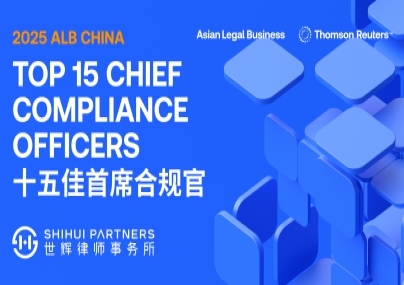This article was first published in ALB Insights, a weekly, ad-free premium newsletter that provides analysis and opinions related to the important news and trends in Asia’s fast-growing legal markets. Featuring a mix of features, Q&As with key figures, and profiles of some of the hottest firms and service providers, Insights will available only to paid subscribers at the end of its free trial period.
To subscribe to Insights, please email taranjit.kaur@thomsonreuters.com.
Tell us a bit about your career so far.
I grew up in New Zealand and obtained my first degree there. After graduation, I had some brief experience as a barrister in New Zealand before returning to Hong Kong. I was trained as a solicitor with the Hong Kong firm Kao, Lee & Yip and Deacons and then worked at Deacons’ China intellectual property (IP) department for around five years before moving on to Mayer Brown. I joined Alibaba in 2012.
What are some of the major recent trends in your industry? In what ways have you seen these change or affect your role?
As the tech industry develops, certain trends in IP infringement liability, payment processing regulations, and data privacy compliance – just to name a few – are also emerging. The key characteristics of these trends such as uncertainties as a result of underdeveloped laws and the asymmetric legal expectations in different jurisdictions are common to businesses whose scope and speed of development are similar to ours.
I see a growing need to learn new skill sets very quickly and an increasing need to improve coordination between internal and external stakeholders in order to ensure the scalability of legal compliance in a commercially reasonable manner.
How many lawyers does your team consist of, and how does the structure work as a whole?
My team in Hong Kong is responsible for all litigation and contentious issues outside of mainland China. Our job scope and team size necessitates a very flat and lean structure to facilitate efficient and effective communication and decision-making. Responsibilities are generally divided into active case management and internal advisory work. Active case management consists of managing lawsuits in collaboration with external counsels and implementing litigation strategy. Internal advisory work includes advising internal stakeholders on system improvements as a result of insights gained from our contentious works.
How would you describe your strategy for the legal team?
Ho: The overriding goals of our team are to protect our freedom to operate by preventing or minimising adverse legal developments and to align legal obligations with business objectives. Maintaining clear communication and immersion of business and system developments is an effective strategy in achieving our goals. That is why apart from resolving lawsuits and disputes, it is equally important to reflect and implement learning from lawsuits and disputes into our business and systems.
What would you say has been the proudest moment of your career so far?
Ho: When I joined Alibaba in 2012, I joined the Hong Kong-listed company responsible for international B2B trades. The team I worked for merged into the Alibaba Group’s legal department when that company was de-listed from the Hong Kong Stock Exchange. Over the years, I was entrusted to develop an international dispute resolution team for the Group and I’m proud to have achieved that.
What is the best advice you have ever received?
Some advice from my father: Always aim to give people pleasant surprises. In a business context, this translates to proactively anticipating the needs of others and satisfying them in advance as well as maintaining a keen sense of risks and mitigating them proactively.


